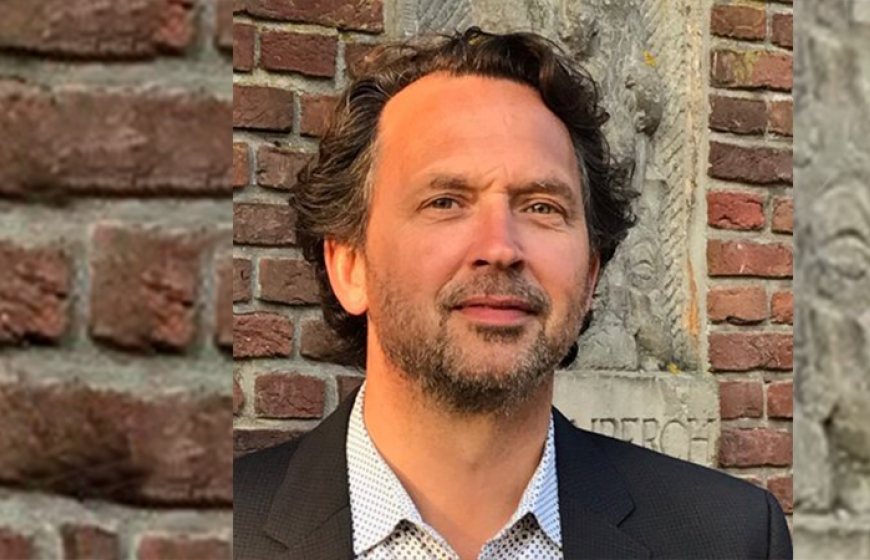Blog
9 April 2020Valuing natural and human capitals

Transforming the way decisions are made by including the value provided by nature, people and society. That is what Capitals Coalition is all about. Since water is a key component of natural capital, and valuing water is a core belief of the Netherlands Water Partnership (NWP), becoming a strategic partner of this new entity is a logical step for NWP. Deputy Director Martin Lok underlines what added value the Capitals Coalition offers and how the Dutch Water Sector can benefit.
Thirty-five definitions
‘More and more, measuring and valuing social, human and natural capital is becoming a crucial component of any business strategy. The main challenge, however, is how to do this in a practical, robust and scalable way. When we started as the Natural Capital Coalition in 2012, there were no fewer than 35 definitions of natural capital. This was causing confusion in the space and making it harder to communicate the concept effectively to stakeholders. To address this fragmentation, the Coalition convened a group of international leaders, recognised experts, innovators and respected practitioners – including Bianca Nijhof, now NWP’s Managing Director - to develop the Natural Capital Protocol, and to harmonise existing attempts at defining the concept into a single agreed definition. The harmonised definition was formally established through an extensive consultation process and ultimately became:
‘Natural capital is another term for the stock of renewable and non-renewable resources (e.g. plants, animals, air, water, soils, minerals) that combine to yield a flow of benefits to people.’
Fundamentally connected
Following the success of the Natural Capital Coalition, the Social and Human Capital Coalition was formed by the World Business Council for Sustainable Development (WBCSD) to emulate this achievement. The WBCSD recognised that natural, social and human issues are fundamentally connected, and must be addressed together. In 2019, the Natural and the Social & Human Capital Coalition united in a single organisation: the Capitals Coalition.
The Capitals Coalition unites over 350 organisations and engages many thousands more who together represent all parts of society and span the global economy. Although our core team is relatively small, we work with a large international network. Some of the important projects that we work on include drafting the Environmental Generally Accepted Accounting Principles (E-GAAP) as well as a primer that will connect the three capitals. We will use capitals thinking to transform food systems through the TEEBAgriFood project with UNEP (the United Nations Environmental Programme) and continue to build a strong community to mainstream this approach together.
Applied around the world
The Natural Capital and the Social and Human Capital protocols are now being applied by organisations around the world, including many Dutch companies. For instance, asset manager Actiam used natural capital thinking to inform its water strategy, and the ABN AMRO bank included nature in its annual integrated report.
To help businesses apply the Natural Capital Protocol, the WBCSD has developed the Natural Capital Protocol Toolkit. It places existing tools under the umbrella of the Protocol’s international standardised framework, and links them to the generally accepted process for conducting a natural capital assessment. The Toolkit is hosted by MIT SHIFT, a MIT Sloan Sustainability initiative. The Toolkit also contains a Natural Capital Checker (NatCap Checker), providing practitioners with a self-assessment tool that enables them to assess, communicate and improve their level of confidence in their natural capital assessments.
Valuing water
The Valuing Water Initiative (VWI), launched by The Netherlands, showcases the implementation of the United Nations Valuing Water Principles in order to bring systemic change in the way water is valued in policy, practice, finance and behaviour. The VWI is about recognising and embracing water’s multiple values in all decisions affecting water. It aims to: reconcile values and build trust; protect sources and used waterflows; educate and empower; and, invest and innovate in nature-based solutions that minimise risk and optimise opportunities related to impacts and dependencies on water. To me, it is clear that the Protocol and Toolkit can help in valuing water in a very practical sense. And this enables us to continuously improve and further develop them.
Enhancing chances
Just like NWP, we bring parties together to find common ground, and I am convinced that the Dutch water sector can use the Protocol to value water and to increase opportunities in the Netherlands and abroad. By using the Protocol and Toolkit, the Dutch water sector could demonstrate convincingly and verifiably how they deal with the value of water for people and nature. This is important for governments and financial institutions too. Together, we can use our networks to connect potential partners to collaborate on further strengthening this approach. In discussion with Dunea (member and board member of NWP), we are exploring collaboration opportunities within the Netherlands, and with other partners we are also exploring a joint action around the world, for example to join forces for the Leadership by Example tender launched by the VWI.
An integrated approach
At Capitals Coalition, we recognise that companies – both corporates and SMEs – need integrated guidance that allows them to identify, measure and value their relationships across the four capitals: natural, social, human and economic. We are convening this broad community of experts across disciplines to further harmonise guidance and to package it in such a way that all businesses and governments around the world can apply it in their specific contexts. This broader push towards an integrated approach at all levels is one of the topics on which we would like to collaborate with NWP and its members in the near future. I am convinced that we can take significant steps forward together!’
For more information on the work and activities of the Capitals Coalition, please contact Martin Lok at martin.lok@capitalscoalition.org.